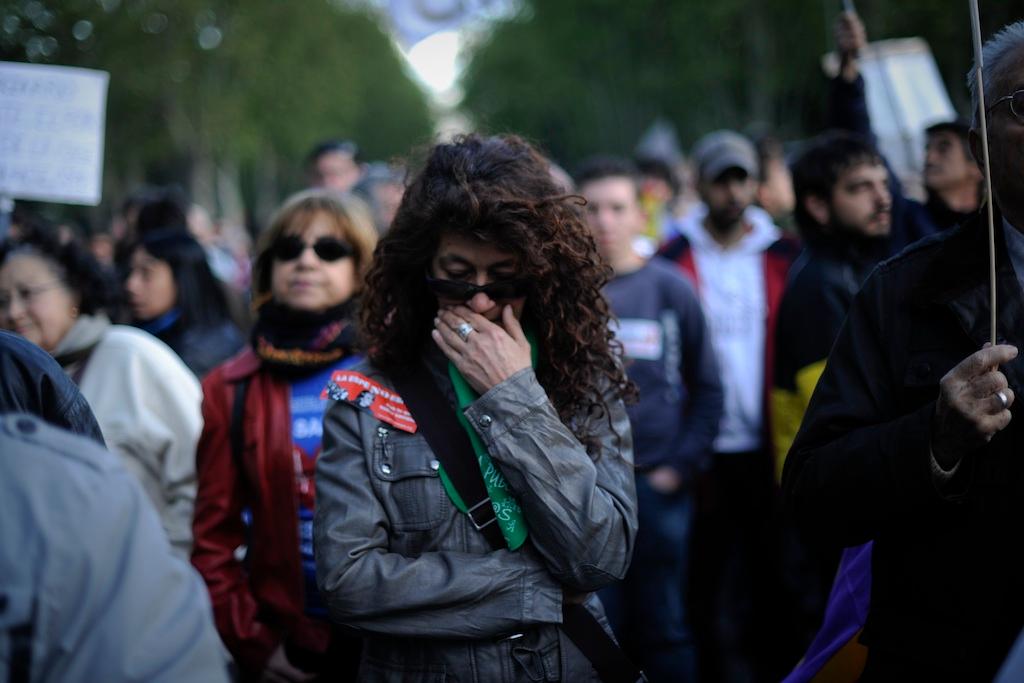ILO says global unemployment at ‘alarming’ levels
Protesters attend a rally against financial cuts in health and education in Madrid on April 15, 2012. Spain has nearly 50 percent unemployment for workers under 30.
The International Labor Organization (ILO) has warned that global unemployment has reached “alarming levels” and that fiscal austerity and tough labor reforms have failed to create jobs.
According to the United Nations agency’s flagship World of Work Report 2012, unemployment worldwide is expected to reach 212 million this year – up six million from 2011 – while employment in advanced economies, especially in Europe, is not expected to return to pre-crisis levels until the end of 2016, in line with a slowdown in production, Reuters reports.
The report also says that fiscal austerity and labor market reforms have had “devastating consequences” for employment, reducing small businesses’ access to credit while mostly failing to reduce deficits.
“Austerity has not produced more economic growth. The ill-conceived labor market reforms in the short-term cannot work either. These reforms in situations of crisis tend to lead to more job destruction and very little job creation, at least in the short-term,” Raymond Torres, director of the ILO’s Institute for International Labor Studies and the report’s lead author, told a news briefing.
The ILO report urges governments to restore credit to small companies, strengthen labor market safety nets and adopt measures to help young workers and other vulnerable groups, according to RTE News.
More from GlobalPost: Where do you fall on the global pay scale? The International Labor Organization can tell you
While high unemployment has been a concern in the US and other major economies and has hurt the global economic recovery, the ILO’s report comes at a time when some of the euro zone biggest economies in the euro zone are being forced to cut government spending to dig their way out of the region’s ongoing debt crisis, the BBC reports.
Data published last week showed that the jobless rate in Spain hit a record high of 24.4 percent at the end of March, while unemployment in France also rose for the 11th straight month at the end of the March.
The ILO report says that social unrest is expected to grow in Europe as a result of steep welfare cuts and failures to implement policies to reduce unemployment, which may be accompanied by “social implications in terms of increased social strife, riots, illness, and so forth,” The Guardian reports.
“Society is becoming increasingly anxious about the lack of decent jobs. In 57 out of 106 countries, the Social Unrest Index increased in 2011 compared with 2010,” the report notes, highlighting Europe, the Middle East, North Africa and sub-Saharan Africa as the areas most affected by strikes and protests.
More from GlobalPost: Unemployment crisis spurs global youth summit
The article you just read is free because dedicated readers and listeners like you chose to support our nonprofit newsroom. Our team works tirelessly to ensure you hear the latest in international, human-centered reporting every weekday. But our work would not be possible without you. We need your help.
Make a gift today to help us reach our $25,000 goal and keep The World going strong. Every gift will get us one step closer.
